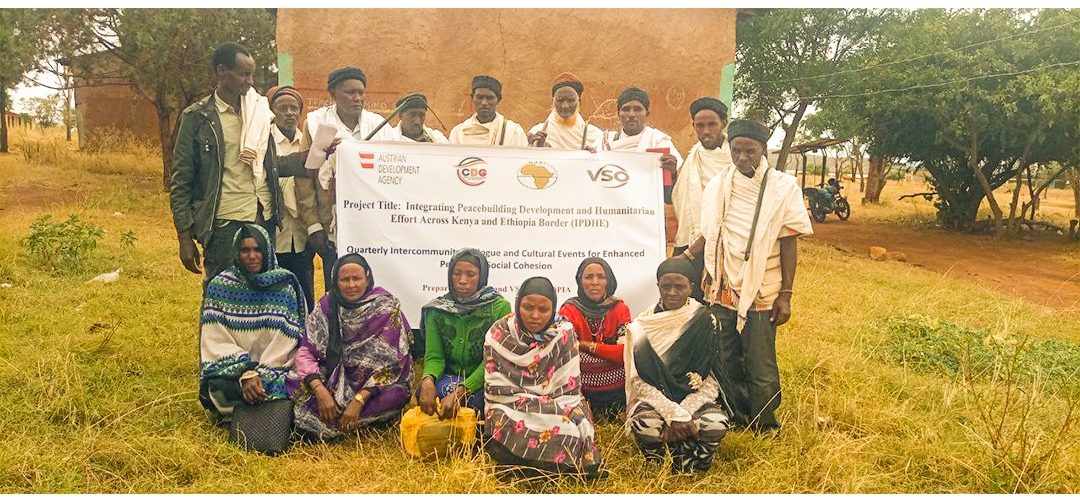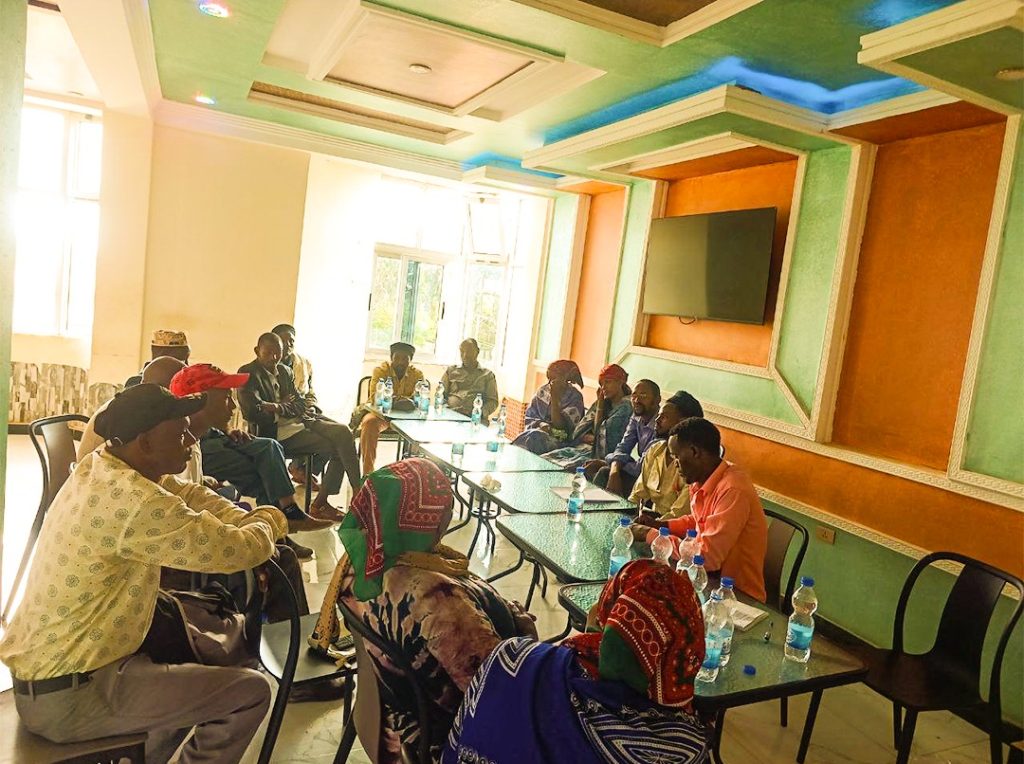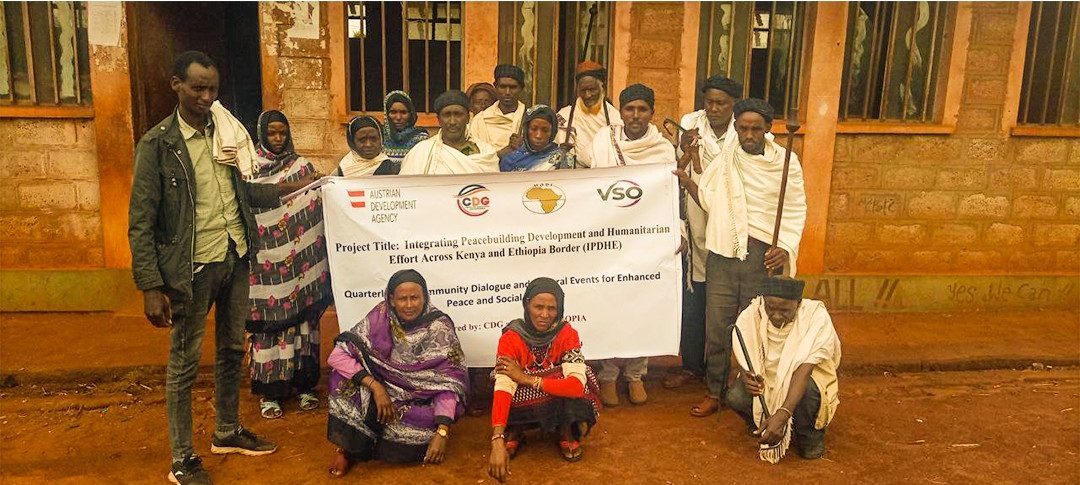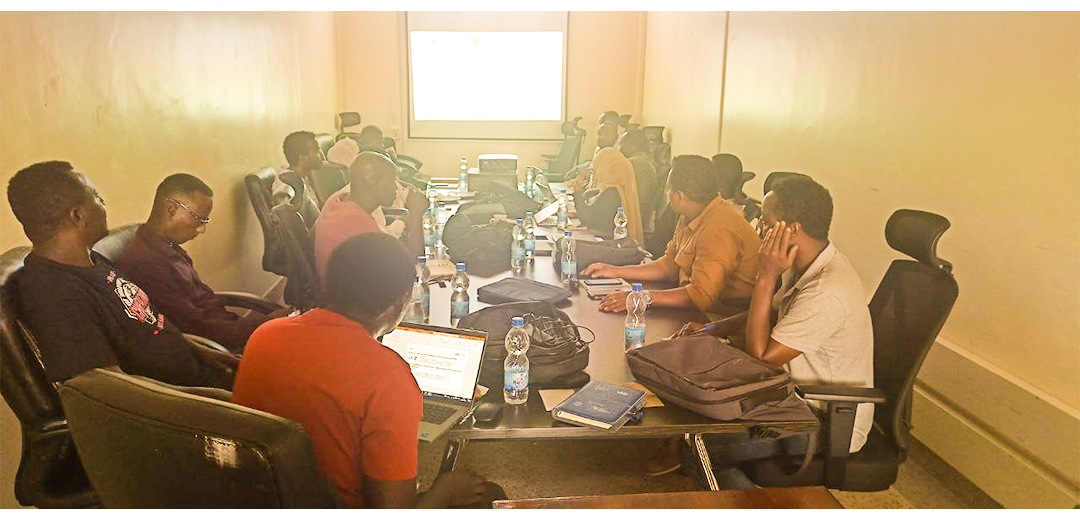
Close

The CDG, VSO, key stakeholders and members of the target communities who live in Moyale and Miyo Districts of Borana Zone discussed issues of their common concern in a two day (28 – 29 February 2024) meeting. Initially, the participants were updated about implementation status of the project, Integrating Peace Development and Humanitarian Effort (IPDHE). Briefing was given about project objectives; implementation mechanism; and the expected outcomes. In addition, participants were briefed as to why the inter community and inter institution dialogue is important at this point in time. Members of the communities were drawn from Borana, Gareh, Gabra and Burji who either share border or live within one or the other locality. Besides project implementation details, the discussion covered peace, development and risk management identified as urgent and topical issues.

During the discussion the participants cited regrettable past sufferings because of violence that broke out between the different communities. There were heavy losses of lives and damages to property which happened five years ago. Besides the disaster, free movements of community members to earn a living was halted which led to stagnation of development activities. It exacerbated poverty among the communities. There were no schooling; there were no social services like healthcare; there were no movements of goods and services; and nationals were exposed to hunger.
At the time of the conflict even structures of the Government at local levels found it very difficult to control the violence. They were not reliable to ensure peace and security to the respective communities. In the aftermath of the devastating conflict, drought occurred with its toll again. That happened before wounds of the conflict could heal which again limited the resilience capacity of the affected communities.

Today, when the intercommunity conflict has subsided, theft and robbery have emerged as another form of social evil. It is a daily experience to see snatching of mobile phones and cash. The culprits use motorbikes particularly in Moyale to quickly flee with the property. The police are seen idle even when the criminal acts take place in their presence. Sometimes they too becomes victims particularly when they are in plain clothes. Such poor policing service and weak government control created gap for aggressive offense by robbers and thieves.
There is an extension to the expansion of acts crime: Suspicion and naming of the culprits to implicate add to escalation of conflict as perpetrators may appeal to their respective clan for protection under ethnic allegiance, particularly when it is across communities.
On the other hand, there were a large population influx into Moyale and IDPs into Fugug over the last five or so years that have created repercussions. (Over 180 IDPs arrived at Fugugi during the drought) Obviously, the new comers share resources and opportunities made available to the locals. Again, there could be individuals who indulge in acts of crime among the new comers who, in so doing, violate indigenous values and norms. Participants say the incoming population has affected homogeneity of the community particularly in the town diluting allegiance to the tradition which would now require well organized security apparatus and collaboration of the community.

Here comes the need for conflict prevention dialogue between stakeholders involving the communities. Dialogue could lead to better understanding to strengthen social cohesion. The government should have created such linkage for the community to enjoy peaceful life. The CDG implemented project funded by the VSO is a very important platform in which community members could openly discuss issues of common concerns avoiding mistrust, participants indicated. Such a participatory conversation across communities in the area was conducted some years ago.
As most of the communities are pastoralist, they move from place to place with their cattle and share resources during drought. The conversation has a high significance among others for a better understanding in which at the end of the day they could attain such a collaboration, they emphasized. They added that community members and institution leaders could play important role in peace building through periodic intercommunity and inter institution meetings.
During the drought period the government used to provide oxen to assist farmers rehabilitate. Such provision no longer exists except the chance to rent tractors from individuals, which is not affordable for the community. This demands for other options like setting up of cooperatives in which the farmers could get the tractors through lease. If and when facilities for irrigation are made available, there could be options to engage in fruits and vegetable production.
Participants perceive that corruption and inflation are another obstacles that could lead to communal unrest. They could lead to unrest because it unfairly creates differences in access to opportunities in which some may grow rich instantly while the general population remain poor. Thus, it is necessary that community institutions collaborate with relevant institutions of the government to create corruption resistant community.

Lack of awareness of policy- legal environment
The communities are less aware about the border and cross border laws and policies. Sometimes locals become victims of their lack of the needed awareness. It is difficult to transport any local product including cattle and food beyond ten Kilometers to the destination say, Moyale Town where there is checkpoint with possibility of confiscating the asset. Lack of awareness about provisions and restrictions of the law contributes to hindrance for the interdependent cross border community relation and social cohesion. Because people are not aware of their rights and obligations, they conduct business activities underground in a subtle way,
Collaboration with the indigenous structure
Participants believe that the communities have the capacity to resolve conflict properly when there is collaboration with relevant government structure. The community members participate in different local institutions like local peace committee, council of traditional elders’ arbitration (Jaarsa Araaraa shared by all tribes in the area) and religious leaders. Mostly, the elderly play pivotal roles in the society to maintain harmony. Anyone who breaches traditional values is advised, warned, and duly punished by the elders. The youth and women take part in local peace committee.
Finally, the articipants agreed to meet every month to discuss community issues to effectively play the role required from their respective institutions.
Meskel Square Science and Technology Building 5th Floor
Mon – Fri: 8:00 am – 5:00 pm
Get latest CDG news, articles, and resources, sent straight to your inbox every month.